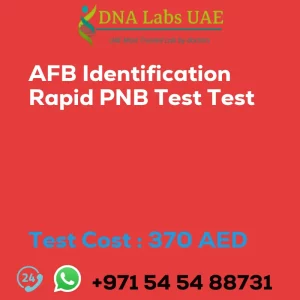EPSTEIN-BARR VIRUS ANTIBODY TO VIRAL CAPSID ANTIGEN VCA IgM Test
Test Name: EPSTEIN-BARR VIRUS ANTIBODY TO VIRAL CAPSID ANTIGEN VCA IgM Test
Components: Price 370.0 AED
Sample Condition: 2 mL (1 mL min.) serum from 1 SST. Ship refrigerated or frozen.
Report Delivery: SampleSat by 9 am; Report Same day
Method: Enzyme Immunoassay
Test type: Infections
Doctor: Physician
Test Department:
Pre Test Information: No special preparation required
Test Details:
The Epstein-Barr Virus Antibody to Viral Capsid Antigen (VCA) IgM test is a blood test that is used to detect the presence of IgM antibodies against the viral capsid antigen of the Epstein-Barr virus (EBV). EBV is a common virus that is spread through saliva and can cause infectious mononucleosis, also known as mono or the “kissing disease.”
The VCA IgM antibodies are produced by the immune system in response to an acute or recent infection with EBV. The test is typically ordered when a healthcare provider suspects that a person may have an active EBV infection, especially if they are experiencing symptoms such as fatigue, fever, sore throat, swollen lymph nodes, and enlarged spleen. It can also be used to confirm a diagnosis of mono.
A positive VCA IgM test result indicates that a person has recently been infected with EBV. However, it does not indicate the stage of the infection or whether the person is currently contagious. Further testing, such as the EBV nuclear antigen (EBNA) antibody test, may be necessary to determine the stage of the infection.
It is important to note that a negative VCA IgM test result does not necessarily rule out an EBV infection, as the antibodies may take some time to develop and may not be detectable in the early stages of infection. Additionally, the test cannot differentiate between a current or past infection with EBV.
The VCA IgM test is typically performed using an enzyme-linked immunosorbent assay (ELISA) method, which detects the presence of specific antibodies in the blood sample. The test is usually done on a blood sample drawn from a vein in the arm and results are typically available within a few days.
If you suspect that you may have an EBV infection or want to confirm a diagnosis, contact DNA Labs UAE for accurate testing and reliable results.
| Test Name | EPSTEIN-BARR VIRUS ANTIBODY TO VIRAL CAPSID ANTIGEN VCA IgM Test |
|---|---|
| Components | |
| Price | 370.0 AED |
| Sample Condition | 2 mL (1 mL min.) serum from 1 SST. Ship refrigerated or frozen. |
| Report Delivery | SampleSat by 9 am; Report Same day |
| Method | Enzyme Immunoassay |
| Test type | Infections |
| Doctor | Physician |
| Test Department: | |
| Pre Test Information | No special preparation required |
| Test Details |
The Epstein-Barr Virus Antibody to Viral Capsid Antigen (VCA) IgM test is a blood test that is used to detect the presence of IgM antibodies against the viral capsid antigen of the Epstein-Barr virus (EBV). EBV is a common virus that is spread through saliva and can cause infectious mononucleosis, also known as mono or the “kissing disease.” The VCA IgM antibodies are produced by the immune system in response to an acute or recent infection with EBV. The test is typically ordered when a healthcare provider suspects that a person may have an active EBV infection, especially if they are experiencing symptoms such as fatigue, fever, sore throat, swollen lymph nodes, and enlarged spleen. It can also be used to confirm a diagnosis of mono. A positive VCA IgM test result indicates that a person has recently been infected with EBV. However, it does not indicate the stage of the infection or whether the person is currently contagious. Further testing, such as the EBV nuclear antigen (EBNA) antibody test, may be necessary to determine the stage of the infection. It is important to note that a negative VCA IgM test result does not necessarily rule out an EBV infection, as the antibodies may take some time to develop and may not be detectable in the early stages of infection. Additionally, the test cannot differentiate between a current or past infection with EBV. The VCA IgM test is typically performed using an enzyme-linked immunosorbent assay (ELISA) method, which detects the presence of specific antibodies in the blood sample. The test is usually done on a blood sample drawn from a vein in the arm and results are typically available within a few days. |








